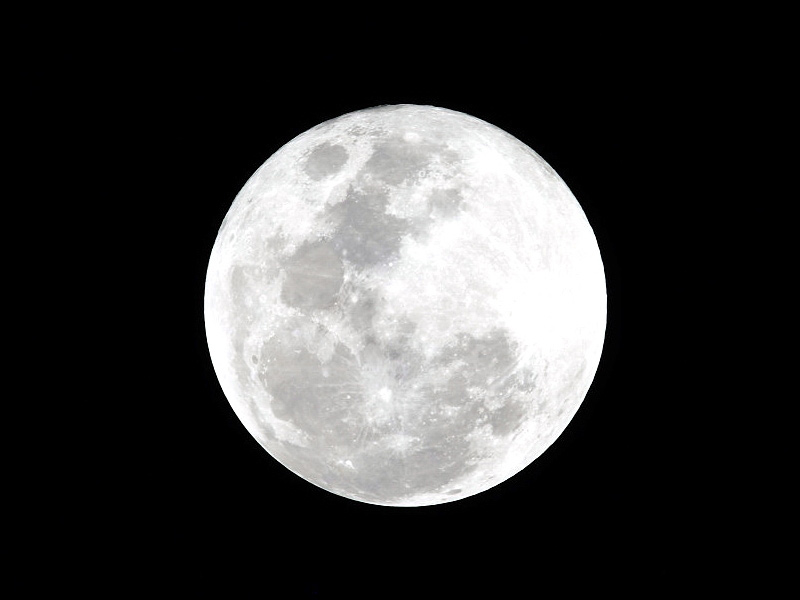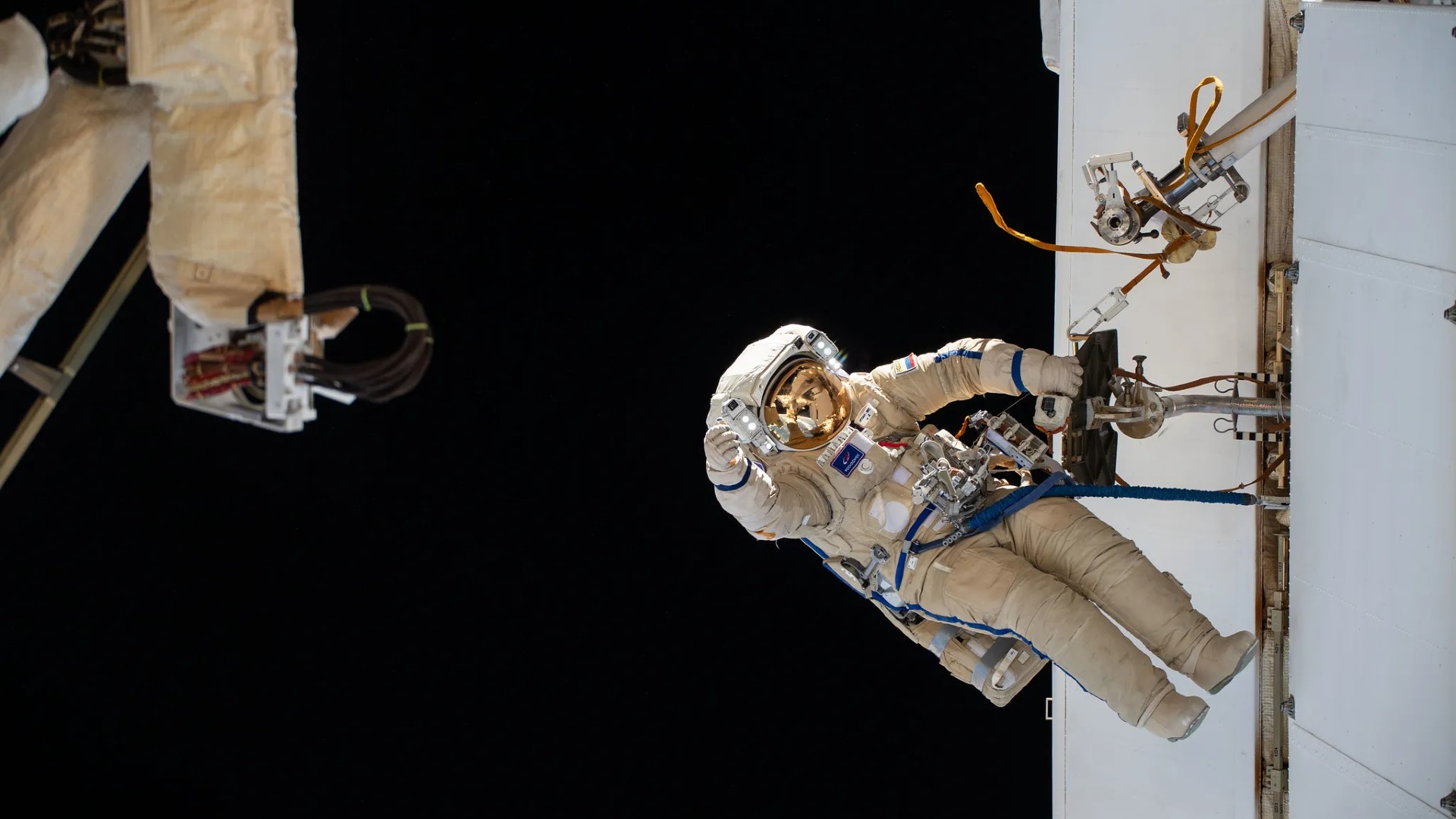Want to Mine the Solar System? Start With the Moon

Breaking space news, the latest updates on rocket launches, skywatching events and more!
You are now subscribed
Your newsletter sign-up was successful
Want to add more newsletters?

Delivered daily
Daily Newsletter
Breaking space news, the latest updates on rocket launches, skywatching events and more!

Once a month
Watch This Space
Sign up to our monthly entertainment newsletter to keep up with all our coverage of the latest sci-fi and space movies, tv shows, games and books.

Once a week
Night Sky This Week
Discover this week's must-see night sky events, moon phases, and stunning astrophotos. Sign up for our skywatching newsletter and explore the universe with us!

Twice a month
Strange New Words
Space.com's Sci-Fi Reader's Club. Read a sci-fi short story every month and join a virtual community of fellow science fiction fans!
SUNNYVALE, Calif. — The first extraterrestrial mining operation in human history will likely start up on the moon, thanks to its ample and relatively accessible stores of water ice, experts say.
That was the majority view of a panel of scientists and engineers asked to consider where, beyond Earth, humanity should go first to extract resources.
The moon won out over asteroids and Mars, chiefly because it's so close to Earth and has so much water, as well as other resources like methane and ammonia.
"I think the moon is clearly the answer," said Greg Baiden, chief technology officer of Penguin Automated Systems, a robotic technology firm. "I could easily make a business case for going to the moon."
Baiden spoke during a session here yesterday (Oct. 29) at a conference called Space Manufacturing 14: Critical Technologies for Space Settlement. The meeting is organized by the non-profit Space Studies Institute. [10 Coolest New Moon Discoveries.]
Private enterprise, Baiden and others said, will likely lead the way to mining the moon because there's so much money to be made, but it will probably need government to prime the pump.
From water to rocket fuel
Breaking space news, the latest updates on rocket launches, skywatching events and more!
The moon has a lot of water ice, as recent discoveries have made clear. Frigid craters at both lunar poles have likely been trapping and accumulating water for billions of years — water that is relatively pure and easy to get at.
"We now know the water there is free water. It's unbound," said Paul Spudis, a scientist at the Lunar and Planetary Institute in Houston, during the panel discussion. "Mining water on the moon is going to be a lot easier than we thought."
This water is so valuable not just for its potential to keep future moon dwellers hydrated. It can also be separated into its constituent hydrogen and oxygen, the chief components of rocket fuel. Propellant could be produced from moon water and sold at refueling stations in low-Earth orbit, allowing spaceships and satellites to top up their tanks in space.
Such an arrangement could revolutionize how humanity uses space, spurring a huge wave of trade, travel and discovery, scientists and entrepreneurs alike have argued. According to that argument, it makes economic sense to supply the filling stations from the moon because its gravity is one-sixth that of the Earth, and thus launching from there is much cheaper.
Indeed, some companies are already drawing up plans to mine moon water for this very purpose. Shackleton Energy Company, for example, hopes to be selling rocket fuel in orbit by 2020, according to its founder Bill Stone, who was not a member of the conference panel.
Such a timeline may seem ambitious, but the technology to start up a primarily robotic lunar mining operation exists today, panel members said. Mining robots could be controlled from Earth.
"We've reached the point of teleoperations now that I think it's feasible to mine the moon," Baiden said.
The moon's close proximity to Earth means that communication between man and machine could happen almost in real time — the lag would be just a second or two, Spudis added.
Water mining would be the first step, most panelists agreed.
After that, other resources may well be exploited, too. Methane and ammonia, which also get trapped in cold craters, could be tapped for their carbon and nitrogen, necessary ingredients for any long-term lunar settlement.
And whenever nuclear fusion becomes a viable energy source, entrepreneurs could go after the moon's stores of helium-3, a prime fusion fuel, the scientists said.
Mining asteroids: Years away
While the moon appears promising for off-world mining, reaching out to asteroids is a bit trickier, the experts said.
Asteroids hold lots of iron, platinum and other valuable minerals — and, possibly, lots of water, too. But industrial extraction is not going to happen in the near future, several panel members argued.
There are thousands of known near-Earth asteroids — which come much closer to us than do space rocks in the main asteroid belt between Mars and Jupiter. But even near-Earth objects are much farther away than the moon, and their eccentric orbits make them tough targets for multiple mining visits.
"You can't get back to the same asteroid all that frequently," said Jeff Greason, president of XCOR Aerospace.
"It is hard to go to one more than once," agreed Mike A'Hearn of the University of Maryland, principal investigator of NASA's EPOXI mission, which uses the Deep Impact spacecraft to study comets, extrasolar planets and other cosmic bodies. "That is a problem."
Greason raised the prospect of dragging an entire asteroid close to Earth, to mine at our leisure. But that as well probably won't happen for quite some time.
"We haven't even returned the first sample from any of these bodies yet," Greason said.
Still, the panel voiced support for asteroid mining sometime down the road, with several members citing the inevitability of extracting resources from the moon, asteroids, Mars and the Mars moons Phobos and Deimos.
"They are all going to be sources of extraterrestrial resources," Greason said.
Making it happen
Most panelists agreed that economics will ultimately drive such extractive enterprises. Private industry, rather than government, will be doing most of the heavy lifting.
However, government leadership and investment will likely be needed to get these businesses off the ground, several panelists said.
Some people in the aerospace industry are skeptical about the feasibility of extraterrestrial mining operations, Spudis said. To get them onboard, government should demonstrate the necessary technologies and know-how.
"Let the government lead the way, and let the private sector follow," Spudis said.
Government could also prime the pump for private industry, some panelists said, spurring demand for rocket fuel sold from orbiting filling stations.
"An appropriate government investment can catalyze it," Greason said. "Government shows the initial demand and the private sector figures out how to provide the supply."
The panel agreed about the transformative potential of extraterrestrial resource extraction. Once business gets a foothold in space, and it becomes obvious how much money there is to be made, space will open up to humanity. The sky is no longer the limit.
"Once you do that, you have economic escape velocity," Greason said. "If we can get there, the stars are ours."
- Images: Future Visions of a Lunar Base
- 10 Coolest New Moon Discoveries
- Is Mining Rare Minerals on the Moon Vital to National Security?

Michael Wall is a Senior Space Writer with Space.com and joined the team in 2010. He primarily covers exoplanets, spaceflight and military space, but has been known to dabble in the space art beat. His book about the search for alien life, "Out There," was published on Nov. 13, 2018. Before becoming a science writer, Michael worked as a herpetologist and wildlife biologist. He has a Ph.D. in evolutionary biology from the University of Sydney, Australia, a bachelor's degree from the University of Arizona, and a graduate certificate in science writing from the University of California, Santa Cruz. To find out what his latest project is, you can follow Michael on Twitter.
